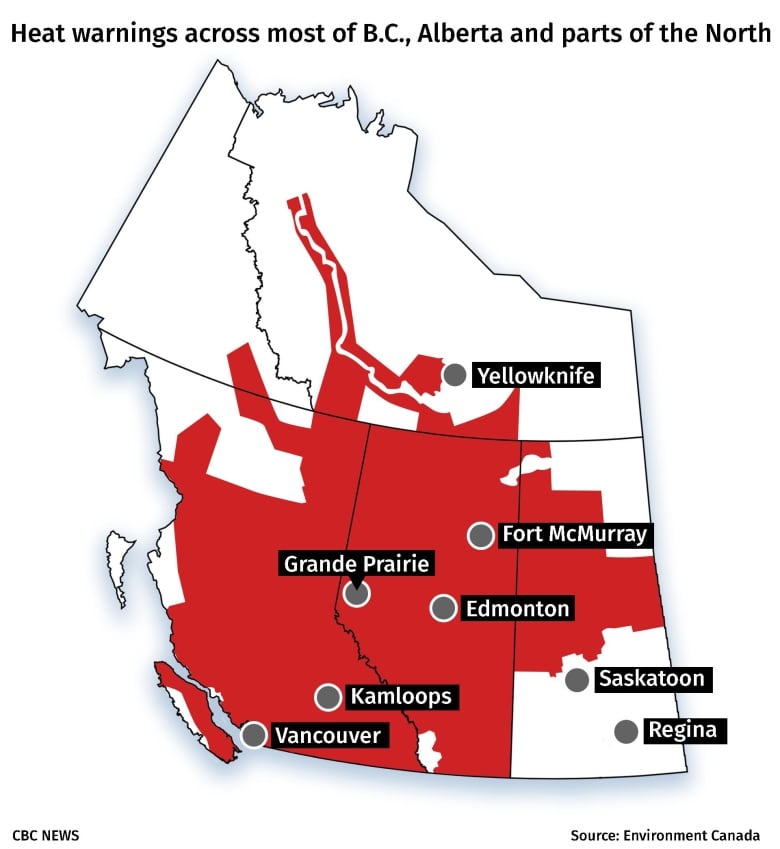Daily and all-time temperature records are expected to be broken over the coming days as a “heat dome” settles in over Western Canada, from British Columbia into Saskatchewan and up into the Northwest Territories and Yukon.

Daily and all-time temperature records are expected to be broken over the coming days as a “heat dome” settles in over Western Canada, from British Columbia into Saskatchewan and up into the Northwest Territories and Yukon.
Last week, CBC meteorologist Johanna Wagstaffe said that heat dome is what is expected to break records.
“Sinking air will push down on the air near the ground, basically like a pressure cooker,” Wagstaffe said.
“That high is not going anywhere anytime soon.”

And climate changes means such trends are not going away anytime soon, Wagstaffe said.
“We’re breaking some very old records, and that’s always an indication of climate change,” she said. “But also we’re breaking records from just a couple of years ago.
“And every time we see records that are quite new, it means our baseline is shifting.”
WATCH | CBC meteorologist Johanna Wagstaffe explains what a heat dome is and why it is set to cook Western Canada:

CBC Meteorologist Johanna Wagstaffe explains what a heat dome is and why it could be responsible for a once in a hundred year heat wave. 3:38
Record temperatures
Environment Canada said afternoon high temperatures are expected to climb to the mid-30s Sunday afternoon before peaking near 40 C in the middle of the week in some regions of southern Alberta.
The agency is urging Albertans to:
- Reschedule outdoor activities to cooler times in the day.
- Take frequent breaks from the heat and spend time in cool indoor places when possible.
- Drink plenty of water.
- Never leave any person or pet inside a closed vehicle.
The last time Calgary had a stretch with five days of 32 C was in 1914. Edmonton is predicted to break its temperature record of 37.2 C, which was set in 1937.
A swath of central and western Saskatchewan, along with parts of the Northwest Territories, are also under a heat warning on Sunday, according to Environment Canada.
B.C. was hottest place in Canada on Saturday
British Columbia shattered temperature records on Saturday, with the village of Lytton posting the hottest temperature in the country — a record-breaking 43.2 C, according to Environment Canada.
It’s important for residents to monitor themselves for symptoms of heat stroke or heat exhaustion, Environment Canada said.
The high temperatures bring with them an increased risk of heat-related illnesses, especially for those with underlying health conditions or those people experiencing homelessness.

Calgary resident Danny Walker was delivering bottles of water on Saturday to The Mustard Seed, a shelter in the city’s downtown that has expressed an urgent need for bottled water in recent days.
“We gotta help, that’s all,” Walker said.
Symptoms of heat stroke or heat exhaustion include high body temperature, lack of sweat, fainting, unconsciousness and confusion.
Little to no reprieve is expected overnight as overnight lows will remain between 15 and 25 C throughout parts of Alberta.
